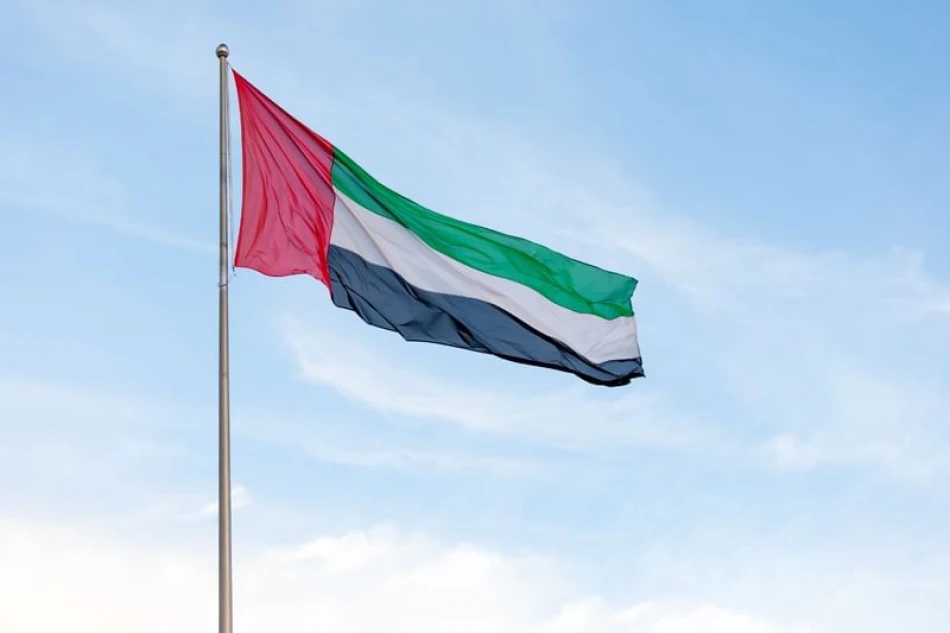
UAE's Exceptional Diplomatic Efforts to Lift the Blockade on Gaza Strip
UAE Emerges as Key Diplomatic Broker in Gaza Crisis Through Strategic International Engagement
The United Arab Emirates has positioned itself as a central diplomatic force in addressing the Gaza crisis since October 2023, leveraging its unique regional relationships and international partnerships to secure humanitarian corridors and broker temporary ceasefires. Through sustained engagement with both Arab allies and Western partners, the UAE has demonstrated how middle powers can effectively navigate complex geopolitical crises while maintaining pragmatic relationships across traditional divides.
Strategic Diplomatic Architecture
Since the outbreak of violence in Gaza, UAE President Sheikh Mohammed bin Zayed Al Nahyan has conducted an intensive diplomatic campaign that spans multiple international forums. His participation in the November 2023 BRICS emergency meeting on Gaza marked a significant moment, as the UAE used this platform to amplify calls for civilian protection and unobstructed humanitarian access—demonstrating how the Emirates leverages diverse international partnerships beyond traditional Western alliances.
This multi-track approach reflects the UAE's broader foreign policy evolution since the Abraham Accords. Rather than viewing its normalization with Israel as constraining its ability to advocate for Palestinian causes, the Emirates has used these relationships as diplomatic leverage. The July 2024 phone call between UAE Foreign Minister Sheikh Abdullah bin Zayed and Israeli Foreign Minister Gideon Saar, which secured agreement for emergency aid to reach 15,000 Gaza civilians, exemplifies this pragmatic approach.
UN Security Council Influence
The UAE's role as the Arab member of the UN Security Council has proven particularly significant. The Emirates worked closely with Malta to draft Resolution 2712 in November 2023, calling for extended fighting pauses to allow humanitarian deliveries. This collaboration demonstrated sophisticated diplomatic coalition-building, pairing Arab legitimacy with European procedural expertise.
More importantly, the UAE independently presented Resolution 2720 in December 2023, which demanded concrete steps to increase humanitarian aid flow to Palestinians and protect UN personnel. This marked a notable shift from traditional Arab diplomatic approaches, which often relied on bloc statements rather than individual initiative-taking in international forums.
Regional and International Coalition Building
The UAE's participation in various ministerial meetings throughout 2024 reveals a carefully calibrated strategy of maintaining credibility across different diplomatic circles. From the Arab ministerial meeting in Cairo to the EU Foreign Affairs Council in Brussels, the Emirates has consistently advocated for immediate ceasefires while supporting UNRWA operations—positions that align with international humanitarian law while avoiding more controversial political stances.
Balancing Act with Strategic Partners
The UAE's approach contrasts sharply with other regional powers. Unlike Qatar's direct mediation role or Egypt's border control leverage, the Emirates has focused on multilateral diplomacy and humanitarian facilitation. This strategy allows the UAE to maintain its economic relationships with Israel while demonstrating solidarity with Palestinian causes—a balance that serves its broader regional ambitions.
Implications for Middle East Diplomacy
The UAE's Gaza diplomacy signals a maturation of its foreign policy capabilities and regional influence. By successfully navigating relationships with Israel, Arab states, and international partners simultaneously, the Emirates has established itself as a credible mediator in regional crises. This positions the UAE advantageously for future diplomatic initiatives, particularly as regional powers prepare for post-conflict reconstruction efforts in Gaza.
The sustained nature of these diplomatic efforts—spanning from October 2023 through early 2025—demonstrates institutional commitment beyond reactive crisis management. This suggests the UAE views Palestinian-Israeli mediation as a long-term strategic interest rather than temporary humanitarian concern.
Looking Forward
The UAE's diplomatic engagement in the Gaza crisis has established important precedents for how normalized Arab states can maintain credible advocacy for Palestinian causes while preserving strategic relationships with Israel. As international attention turns toward post-conflict planning and potential two-state solution frameworks, the Emirates' demonstrated ability to work across traditional diplomatic divides positions it as a key player in future peace processes.
This approach may serve as a model for other Arab states considering normalization with Israel, showing that diplomatic recognition need not preclude advocacy for Palestinian rights when managed through sophisticated multilateral engagement.
Most Viewed News

 Sara Khaled
Sara Khaled






